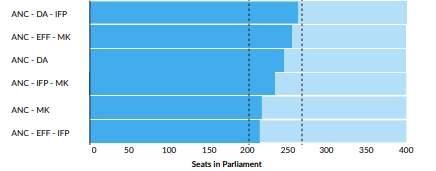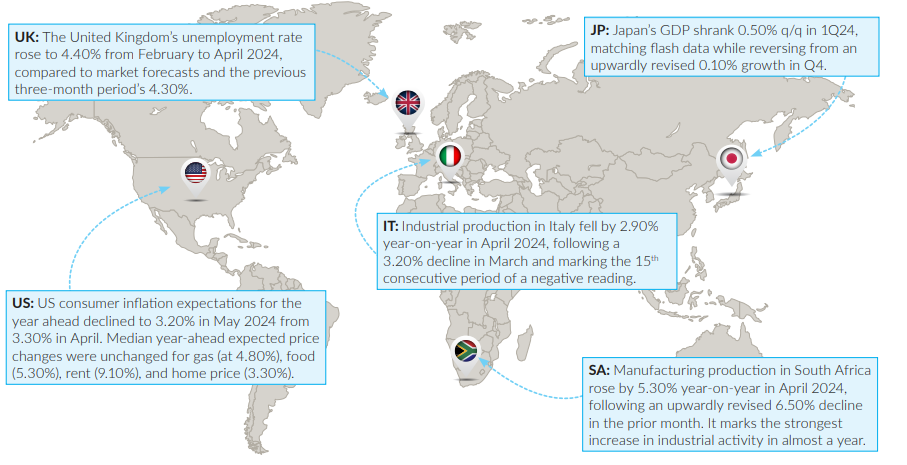12
June 2024
The African National Congress announced its intention to form a national unity government with major opposition parties.

Adriaan Pask
Chief Investment Officer, PSG Wealth
After losing its majority in May’s general elections for the first time in 30 years, the African National Congress (ANC) announced its intention to form a national unity government with major opposition parties. With only a few days remaining before the 14 June deadline, where newly elected MPs are expected to be sworn in and elect a president together with a speaker of parliament, the party is scrambling to finalise the specifics of this new government. “A national unity government seeks to include – as broadly as possible – the range of major
political parties in the legislature, even ones that are hardline rivals. In the case of South Africa, this type of joint government will mean different parties getting to control different ministerial
portfolios.” Reuters explained.
Business Day reports that the ANC has already conducted initial coalition engagements with the DA, EFF, IFP, Patriotic Alliance and the National Freedom Party. It will then have to balance a variety of demands from all parties in order to establish a government of national unity (GNU). Although the DA and the IFP have agreed in principle to the ANC’s proposal, the DA’s federal council deferred a definitive stance on multiparty negotiations on Monday, seeking more time to deliberate on the specifics of the path forward. According to
Business Day, negotiations on a DA collaboration with the ANC are ongoing especially on the issue of parliamentary or ministerial posts. Lawson Naidoo from the Council for the Advancement of the SA Constitution indicated that while the clock is indeed ticking, the ANC and DA still have a bit of time to finalise the details of a working agreement. He explained, “Following Friday, assuming the president is elected, the inauguration takes place five days later, at which point the new president officially takes office.
The constitution does not specify a timeframe for the president to announce the cabinet, but a functional government requires a cabinet to be in place,” Naidoo stated. Furthermore, if the DA opts for a formal partnership with the ANC, it will signify a major policy shift for the official opposition. Although the two parties have collaborated in certain municipalities at the local government level, the DA’s federal council has, until now, rejected the idea of a more formal alliance between the two parties, even in South Africa’s metropolitan areas, according to Business Day. The DA’s federal executive will reconvene on Monday 17 June to discuss the way forward. Meanwhile, discussions between the ANC and EFF about their future direction appear to be at a standstill. The EFF has publicly stated that it would reject the ANC’s proposal for a government of national unity (GNU) if it includes the DA and the Freedom Front Plus (FF+). There’s still uncertainty regarding whether the ANC has engaged with Jacob Zuma’s MK party, which emerged as the top vote-getter in KwaZulu-Natal.
Positive sentiment surrounding the GNU has bolstered the rand since late last week. At 17h00 on Tuesday 11 June, the local unit had strengthened 0.25% to R18.69/$. It had strengthened 0.66% to R20.04/€ and 0.34% to R23.77/£.
Number of seats in national parliament for various possible coalitions, 2024
 Source : Institute for Security Studies
Source : Institute for Security Studies
Bottom line:
The range of potential outcomes and their impact on markets remain widespread. As such our portfolios remain well-diversified to mitigate risks. We continue to monitor developments as the dynamic between risks and opportunity evolves
Macroeconomics in Brief
Macro Economics 12 June 2024

Key Market Indicators
Select a tab to navigate
- Loading data...
- Loading data...
- Loading data...